2024 OMSCS Conference Demo Session
Rooms 323-324
DaisyWorld: A Video Game About Climate Change
Abstract
Created as a Master’s project, Daisyworld is a time management video game that teaches players about climate change and negative emissions technologies (NETs). In Daisyworld, the player assumes the role of an intergalactic gardener—breeding, harvesting and selling exotic flowers for profit. In the course of the game, the player learns that their gardening activities produce a substance (analogous to carbon) that threatens the planet by raising its temperature. Players then work to reduce emissions and remove them from the atmosphere, while keeping their business afloat. In this demonstration, participants will be able to play the Daisyworld game, offer feedback, and learn about the game design and development process.
Bio
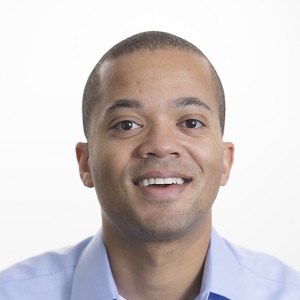
James Coleman is an OMSCS student in his final semester of the program. He has an interest in how spatial technologies (like 3D game engines, VR, and AR) can be used to create powerful experiences and solve problems. Daisyworld, a video game about climate change, is his master’s project. He lives in Smyrna, GA with his wife, Christina, and two children, Erin and Gabriel.
Screen Readers: Heuristic Evaluation and Redesign
Abstract
Screen readers, software programs enabling blind and visually impaired individuals to interact with digital content, play a critical role in bridging the accessibility gap. They convert text attached to visuals of applications into auditory form or display it on Braille display. This study employs a human-computer interaction (HCI) perspective to evaluate heuristically the strengths and weaknesses of screen readers. Our analysis identifies positive aspects such as user-friendly tutorials, highlighting their effectiveness in onboarding users. However, limitations are also identified, including the inability to handle inaccessible software elements. To address these limitations, we explore potential solutions, including the integration of artificial intelligence and the introduction of simple yet impactful features like "Window Statistic" feature. This research aims to contribute to the ongoing effort of enhancing the user experience for screen reader users, ultimately minimizing the negative impact of inaccessible user interfaces on individuals with visual impairments.
Bio
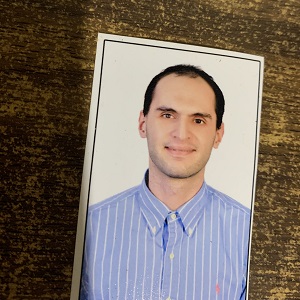
Mohamed Fayed received a Bachelor of Science in Computer and Communication Engineering from Alexandria University and is currently an OMSCS student at Georgia Tech. He is a passionate AI researcher and engineer driven to harness the power of AI for inclusive education and software products. He leverages a diverse perspective gained from blindness, expertise in accessibility tools, and his profession in Natural Language Processing to tackle challenges and create innovative solutions for a broader human experience.
Spicing Up Snake with a WebAssembly AI
Abstract
With LLMs and text-to-image models like Stable Diffusion, machine learning has enjoyed a recent resurgence in interest. While much has been said about the abilities of such models, comparatively little has been said about the practical aspects of integrating models into applications where they can ultimately deliver value. This presentation discusses those less covered practical concerns integrating machine learning models into an application. The investigation is done using an AI player for the game "Snake", which is trained in Python, and a browser-based application for end-user delivery. The chosen integration mechanism from Python to the browser is a custom compiler. Along the way we give an overview of: Q-learning, the mechanism used to train the player; how the trained model can be captured as coefficients of plain-old-data; the compiler powering the integration; and some advantages of this approach for other use cases.
Bio
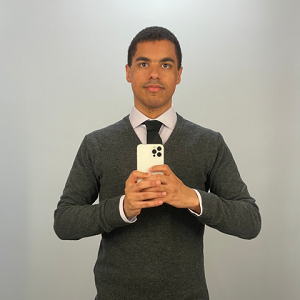
Nick Hancock is an OMSCS alumnus, a machine learning engineer of 5 years' experience, a programmer at Playstation, and a cat dad. Having taken several machine learning projects from conception and modeling to production deployment, Nick is aware of the different hats one is required to wear in each environment. He is currently working to bridge the gap between modeling and deployment, to make it easier and more accessible to bring models to users in production.
FashionSphere: Where Virtual Shopping App Meets Education and Community
Abstract
This application offers users the opportunity to engage in virtual shopping experiences, enabling them to try on clothing, footwear, and various products through customizable avatars. Additionally, it serves as a comprehensive virtual fashion school catering to individuals of diverse age groups and educational backgrounds. Users can access a wide array of fashion-related content and educational resources within the app, facilitating personal development in the field of fashion. For instance, users seeking internship opportunities in the fashion industry can effortlessly explore internship listings from leading fashion institutions worldwide, transcending geographical barriers through the app's multilingual support in approximately 16 languages. Moreover, the platform facilitates academic collaboration in the fashion domain, connecting individuals from different professional backgrounds, such as software engineers aspiring to venture into fashion-related fields. Furthermore, the app endeavors to cultivate an interest in fashion among children through interactive games, educational videos, and age-appropriate content. A key distinguishing feature of the application is its avatar customization functionality, allowing users to tailor avatars to their unique body and physical characteristics for privacy and security. Users can visualize and virtually try on selected clothing items, fostering a deeper understanding of fashion nuances compared to conventional applications. Presently, the app is exclusively available on the iOS platform for iPhones and remains under development. Future iterations aim to expand compatibility to Android devices and enhance user experience through artificial intelligence-driven recommendations and features, ensuring a seamless and enriched app experience.
Bio
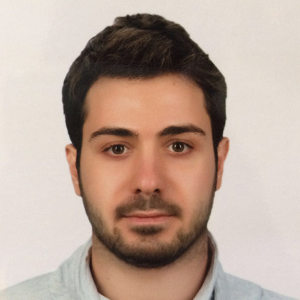
Taha Enes Kon is a distinguished Senior Mechanical Engineer with over 6 years of experience in the oil and gas industry, currently serving at Türkiye Petrolleri Anonim Ortaklığı. He holds a Bachelor's degree in Mechanical Engineering from Erciyes University, with an additional undergraduate degree in Business Administration at Anadolu University in Turkey, showcasing his multidisciplinary expertise. Furthering his academic pursuits, he completed a Master's degree in Mechanical Engineering from Drexel University in the United States. Building upon his foundation, he pursued a second Master's degree at Georgia Institute of Technology, specializing in Human-Computer Interaction within the field of Computer Science. He has a diverse skill set that extends beyond his mechanical engineering background. He has also developed and published applications for both iOS and Android operating systems. Notable among them is "DOT", an innovative social platform designed to bring a fresh perspective to social networking. Additionally, he has developed "Job Comparison", an Android application offering valuable features for users seeking employment opportunities. These applications showcase his proficiency in software development and his ability to adapt to different technological environments. Furthermore, his international experiences, including a student exchange program in Hungary, have further enriched his skill set and global perspective. These experiences have equipped him with the ability to collaborate effectively in multicultural environments and approach engineering challenges from diverse perspectives. Throughout his career, he has consistently demonstrated exemplary leadership, technical proficiency, and a dedication to continuous learning and development. He remains actively engaged in professional development activities to stay at the forefront of advancements in both mechanical engineering and software development.
How to Use Upskill AI to Efficiently Prepare for Exams and Interviews
Abstract
I will demo the web app I built for the Fall 2023 offering of CS 6460: Educational Technology. It is called Upskill AI, which is an AI learning tutor with active learning, spaced repetition, and peer feedback. I will first walk through the main features and then show the live demo of how it works. The attendees will learn how to use the app to help with their next exams in OMSCS and technical interviews.
Bio
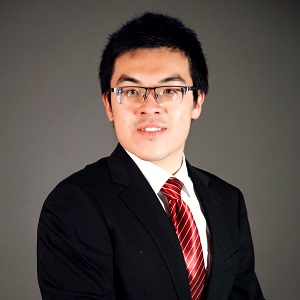
Li Liu is a software engineer specializing in Data/ML/AI. With 5 years of experience, he has developed impactful data-intensive applications for different business domains such as retail, advertising, policy analysis, and e-commerce. He started OMSCS after getting his first master's degree in Computational Economics from the University of Chicago. He is from Shanghai and currently lives in Charlotte, North Carolina. He enjoys outdoor running, presenting at tech events, and networking.
Exploring the Rogues Gallery Testbed for Online Learning
Abstract
The Rogues Gallery testbed is a novel computer architecture environment sponsored by the National Science Foundation and run by Georgia Tech’s Center for Research into Novel Compute Hierarchies (CRNCH). This testbed is a collaborative effort with PACE and the College of Computing that extends the idea of high-performance computing to new and unique or “rogue” platforms like new GPUs, Arm and RISC-V CPUs, neuromorphic chips, and Field Programmable Gate Arrays (FPGAs). This demonstration provides an overview of how OMSCS students and faculty can access and use resources funded by Georgia Tech’s TechFee program as well as unique capabilities to extend research in the areas of space-compatible hardware and software. Specifically, we will show users how easy it is to run notebook-enabled workflows on the testbed for AI-focused labs and research. Secondly, we will demonstrate an emerging capability for evaluating flight software used by researchers at NASA labs like the Jet Propulsion Laboratory (JPL). Finally, we will share some experiences from OMSCS students working with the Rogues Gallery testbed on evaluating new HPC systems including using the Spatter benchmark, a locally developed tool that is being used for the procurement of next-generation supercomputers at Los Alamos and Sandia National Laboratories.
For more information, check out our Rogues Gallery GitHub.
Bios
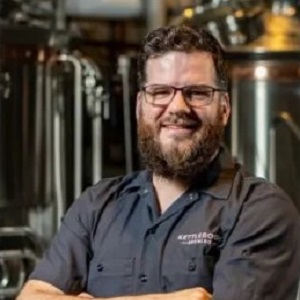
Sterling Peet is a Research Technologist in the School of Computer Science and the primary maintainer of the CRNCH Rogues Gallery testbed, a collection of novel architecture resources. His research interests include the development and deployment of flight software for space-oriented embedded systems. Recent work by Sterling on programs like Lunar Flashlight was acknowledged by Georgia Tech’s “Outstanding Achievement in Research Program Development” award in 2023. Sterling received his B.S. from Georgia Tech in 2016.
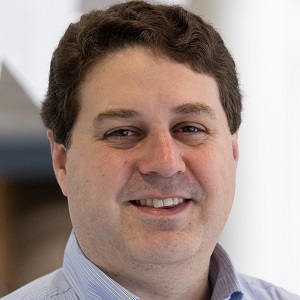
Jeffrey Young is a senior research scientist in the School of Computer Science and the director of the CRNCH Rogues Gallery, a novel architecture testbed funded by the National Science Foundation. His research interests include the intersection of high-performance computing and computer architecture as well as the development and deployment of open source projects and effective software engineering. He received his Ph.D. in Computer Engineering in 2013 from Georgia Tech's ECE department.
Ventilator Weaning Assistance System
Abstract
Mechanical ventilation is a lifesaving technique that works by assisting or forcing respiration when a patient’s own lungs are insufficient. However, there are many side effects, especially with prolonged use. Exact protocols to determine when a patient is ready to be moved off ventilation and the associated procedures vary widely and must account for multiple factors. Our solution is the Ventilator Weaning Assistance System (VWAS), a robust web app that leverages interoperability standards to provide both ventilator patient monitoring and evidence based weaning clinical decision support. The app connects to a Fast Healthcare Interoperability Resources (FHIR) server and pulls patient and observation data for ICU patients on a ventilator and uses this data to form two views: a Population View, and a Clinician view. Our app recommends when patients are ready to start the weaning process by 2 engines: a rule-based model based on critical health parameters in the literature, and a deep learning-based model that draws from the same parameters but is trained against historical data for enhanced accuracy. This app will provide real time analysis for ICU staff to assist in decision-making processes and leverage their expertise to optimize ICU ventilator operations and enhance patient outcomes.
Bio

Xiaoyang (Jeremy) Xia is a Senior Petroleum Engineer at Ryder Scott Company, with over 9 years of experience in petroleum reserve evaluation and economic evaluation. Previously, he worked for QRI Group. Xia has B.S. degrees in Chemical and Biomolecular Engineering from Nanyang Technological University, Singapore, and a master’s degree in Petroleum Engineering from Texas A&M University. Xia expects to graduate from OMSCS in May 2024.
Program
Check out the Program page for the full program!
Questions About the Conference?
Check out our FAQ page for answers and contact information!